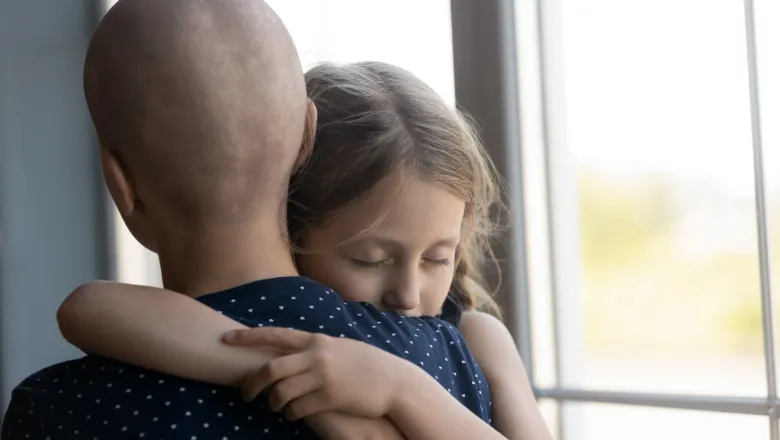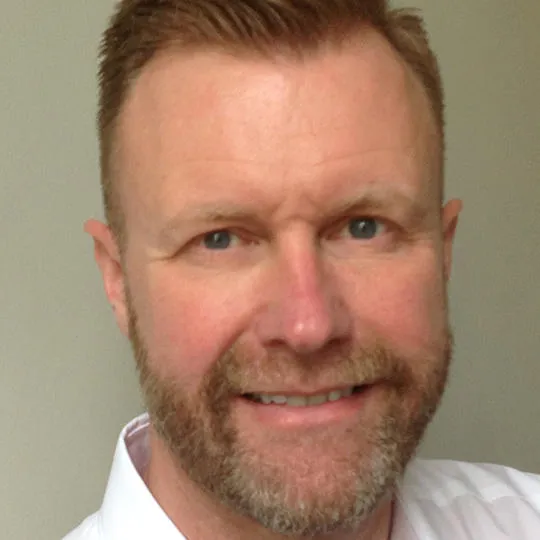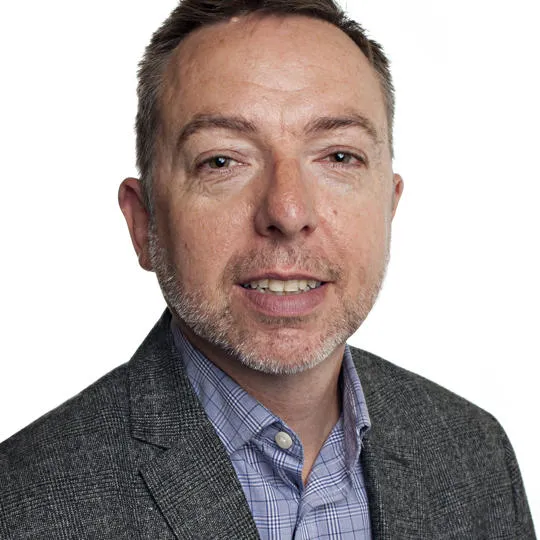We deny children their agency and children do have agency. They do, and that's something that very clearly came out of the interviews. If you as an adult had a relative that was in hospital, I wouldn't say to you “you can't visit”, I wouldn’t keep you in the dark, so why are we doing it with children, especially with possibly the most important relationship in their lives.
Dr Steve Marshall, Honorary Senior Lecturer
08 October 2021
New guide to help healthcare professionals support terminally ill parents to speak to their families
Researchers at King's developed the guide with children and young people and Marie Curie.

Children have a right to be involved in end of life conversations about a terminally ill parent, the author of a new guide for health professionals from the UK’s leading end-of-life charity has said.
Dr Steve Marshall, Honorary Senior Lecturer at the Cicley Saunders Institute for Palliative Care, Policy & Rehabilitation, King’s College London and a palliative care social worker, has worked with more than 30 children and young people to create the booklet with Marie Curie, which gives tips for health workers to support parents needing to have conversations about end of life with youngsters.
The guide includes 10 tips, from preparation, maintaining a routine and forward planning to using plain language and not giving false hope. It has been written in collaboration with Professor Richard Harding, Marie Curie board member and Director of the Cicely Saunders Institute and co-produced with Cherith Semple and Jeff Hanna of the University of Ulster.
Dr Marshall said: 'I've worked in this field for a long time. Sometimes families will ask for myself or someone else in the team to talk to their children directly, but on the whole most of our work is actually supporting parents to have those conversations. Part of the motivation behind the guide was to actually empower professionals to have those conversations with parents or to even just start that conversation. I would say that 99 per cent of the parents that I work with, are totally on the right page and know what to say and what to do, they just need the reassurance from somebody like me who tells them that they're doing the right things.'
The guide is based on Marie Curie funded research carried out with 32 children and young people, aged 6 and above, who were interviewed by the team. Dr Marshall said that these conversations were important to have with children and young people, in order for adults and parents to give up some power.
Dr Marshall continued: 'Children have a right to be involved and have a say in matters that affect them, and what impacts you more than the death of a parent - it's going to affect you for the rest of your life, isn't it?
We know it's life changing for children, we know that their outcomes are much poorer. Why aren't we facilitating children having a say and having a role on an issue that’s life changing for them?'
He suggested as well as having direct conversations, that memory boxes were a good way to get children involved in a loved one’s end of life, while the dying person writing letters for future birthdays or other special events for the children needed to be managed by someone, so those aren’t “lost in a drawer”.
Dr Cherith Semple, Reader in Clinical Cancer Nursing, Ulster University / South Eastern Health and Social Care Trust added: 'Children informed about their parent’s poor cancer prognosis and involved in family communication is helpful and protective for the children, not only in the short-term but into their adulthood.'
Dr Jeff Hanna said health and social care professionals felt that they often 'lack the confidence and words to equip parents to communicate and support their children at end of life.'
The guide - 10 tips to help parents and carers with a life-limiting illness have conversations with their children – is available on the Marie Curie website (see link below).
Read the guide
10 tips to help parents and carers with a life-limiting illness have conversations with their children is available on the Marie Curie website.


